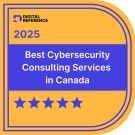SOC2 Certification Guide
Get SOC2 Certification and Grow your Small Business
Introduction
As a small company grows, it often encounters new challenges that must be addressed to continue its upward trajectory. One of the most pressing issues that small companies face in the digital age is obtaining SOC2 certification and others, which has become a vital requirement for small businesses seeking Investor Funding or Cybersecurity Insurance and working with security-conscious clients. Sales and technical teams often encounter complex cybersecurity questions about Security Questionnaires, SOC2 compliance, which can negatively impact small businesses with Growth Strategies. Furthermore, having SOC2 Certification is becoming de-facto standard for selling digital products and services, and many companies, investors and insurance companies will refuse to do business with Product and Service Providers that don’t have it or are not aspiring to get certified. Hence, obtaining SOC2 certification is essential to remove such roadblocks and open up new avenues of revenue for your digital products and services.
What do you mean by SOC2?

SOC2 (System and Organization Controls 2) is a compliance standard created by the American Institute of Certified Public Accountants (AICPA) for service organizations. It replaced SAS 70 (Statement on Auditing Standards) in 2011. SOC2 specifies five trust service principles or Trust Service Criteria (TSC) - security, privacy, confidentiality, processing integrity, and availability - by which organizations should manage customer data. The criteria require an official audit procedure carried out by a certified public accountant to confirm the integrity of the enterprise's services.
It is possible that the results of this audit may differ depending on how specific business practices adhere to one or more of the trust service principles. As a result, stakeholders, regulators, and suppliers can better understand how service vendors manage customer data in the enterprise.
Although often called a "SOC2 certification," SOC2 is, in fact, an attestation. The auditors conducting SOC2 assessments do not certify that a company has met the standard. Rather, the report is a confirmation of what they have observed in the company's security program. In contrast to an actual certification such as ISO 27001, SOC2 compliance allows companies more leeway in selecting and implementing controls to secure their organization.
How to pick the Right Type of SOC2 Certification?
Picking the right type of SOC2 certification can be a critical decision for an organization. To begin with, it is essential to determine whether a SOC2 Type 1 or Type 2 certification is suitable for the organization's needs. Additionally, the Trust Services Criteria must also be strategically chosen to align with the services provided. It is recommended that companies go for a Type 1 certification for their first audit. This provides a baseline for system design and implementation.
Type I
This type of SOC2 report provides detailed descriptions of the service organization's systems and evaluates the design of those systems to ensure that they are in compliance with the trust service principles as stated at a particular point in time.
Type II
In this report a vendor's systems and controls are evaluated for their operational efficiency, which covers a disclosed time period of typically 12 months. The report is an attestation of the performance of these systems and controls, providing a comprehensive overview of their effectiveness.
SOC2 Trust Services Criteria

The SOC2 Trust Services Criteria are a set of five areas of focus that organizations must select from when getting their SOC2 certification. These criteria are Security, Availability, Confidentiality, Processing Integrity, and Privacy. Each criterion represents a different aspect of an organization's controls that must be evaluated during an audit. Choosing which criteria to cover in the report is a critical decision that should be made based on the nature of the organization's business and the services it provides.
Security Criteria
Every SOC2 audit is required to cover the Security Criteria. It is also the largest criteria and encompasses a wide range of controls related to company management, risk assessment, communication, control monitoring, and cybersecurity strategy. This criteria provides guidelines for building a strong security program to protect sensitive information and prevent security breaches.
Availability Criteria
SOC2 Availability Criteria focuses on ensuring the maximum up-time of a vendor's service. It involves developing plans to ensure availability and restoring services in the event of an outage. The criteria also requires implementing controls for business continuity, data recovery, and backup plans to guarantee seamless service delivery.
Confidentiality Criteria
SOC2 Confidentiality Criteria is about focusing on controls that protect confidential business data from unauthorized disclosure. Vendors are expected to identify and safeguard confidential data through various means such as encryption and data destruction.
Processing Integrity Criteria
The Processing Integrity criteria of SOC2 aims to ensure that vendors process data consistently and handle exceptions appropriately. This area of focus requires detailed descriptions of data processing, making it a challenging and laborious task to meet documentation requirements. This criteria requires SOC2-specific content with detailed descriptions of how data is being processed, unlike most other content used in a SOC2 audit that has wider applications beyond SOC2.
Privacy Criteria
The Privacy criteria in SOC2 covers the protection of personal information related to consumers. Vendors are required to have a privacy policy and ensure that consumers' personal data is legally collected and securely stored. This criteria is particularly focused on Business-to-Consumer companies rather than Business-to-Business companies, and includes controls for managing consent, disclosure, and third-party access to personal data.
Which Trust Services Criteria should you pick for your SOC2?
Choosing the right Trust Services Criteria for your SOC2 report is crucial for the success of your audit. While Security and Confidentiality are mandatory, Availability and Processing Integrity are essential for certain types of businesses. Availability is meant for enterprises that offer mission-critical services. As for Processing Integrity, it is meant for client-data-oriented enterprises. On the other hand, for Privacy, following regulatory guidelines like GDPR and CCPA is often a better option than SOC2 Privacy criteria.
Conclusion
SOC2 audits are critical for service providers to demonstrate their commitment to trust and security. The five Trust Services Criteria are each crucial areas of focus for any organization seeking SOC2 certification. It is essential for companies to carefully consider which criteria to select based on their business operations and customer needs. By selecting the appropriate criteria and implementing the necessary controls, service providers can ensure the confidentiality, availability, and integrity of their services while complying with industry standards and regulations.
Talk to a Cybersecurity Trusted Advisor at IRM Consulting & Advisory
Our Industry Certifications
Our diverse industry experience and expertise in AI, Cybersecurity & Information Risk Management, Data Governance, Privacy and Data Protection Regulatory Compliance is endorsed by leading educational and industry certifications for the quality, value and cost-effective products and services we deliver to our clients.










